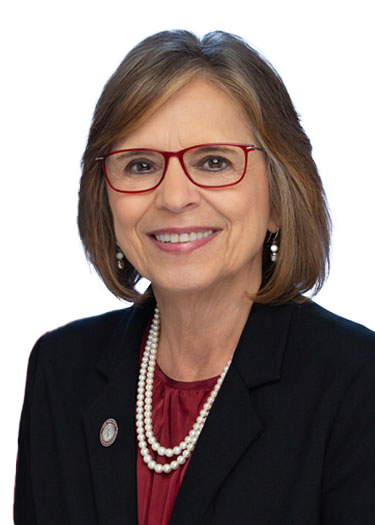Lupardo, Brodsky and Broad Coalition Push for Comprehensive Cancer Mapping Legislation
Communities like Endicott have a Right to know if their Communities are Polluted
Assemblywoman Donna Lupardo (D – Endwell) and Assemblyman Richard L. Brodsky (D – Westchester), Chair of the Committee on Corporations, Authorities, and Commissions, were joined by a broad coalition including the Resident Action Group of Endicott (RAGE) and the New York Public Interest Research Group (NYPIRG) to call on the State Senate and Governor Pataki to approve legislation (A.1884/S.3781) that would establish a comprehensive cancer mapping program in New York State.
Brodsky and Lupardo’s legislation would create a detailed cancer map to identify cancer clusters across the state. The new program will require the Department of Health and the Department of Environmental Conservation (DEC) to maintain detailed computerized databases that track key factors which may contribute to cancer. Ultimately, these databases will allow for the generation of maps at the census block level, which will provide essential information on the correlation between cancer clusters and the social, environmental, occupational and other factors that may be causing them.
Assemblyman Brodsky has fought for years to pass this important legislation. In 1998, Governor Pataki vetoed a similar measure sponsored by Brodsky and the administration dragged its feet on their promise to establish a similar program. When the Administration finally acted after years of delay, the system was an intentionally misleading cover-up of data in the state’s possession.
Assemblyman Brodsky said, “For years the Pataki Administration has intentionally misled and stalled the implementation of a comprehensive cancer mapping program to inform New Yorkers if they are living in high risk areas. We need a real system now. I will continue to fight with this coalition to make sure that this bill becomes law.”
This program will help avoid public health disasters like the one in Endicott, NY where chemical spills at an IBM plant have resulted in abnormally high rates of testicular and kidney cancer. While some residents may have wondered about the high rates of cancer surrounding the IBM plant, it was not until 2003 that the DEC began to vigorously investigate the levels of carcinogenic chemicals in private buildings and the effects of these chemicals on public health.
Assemblywoman Lupardo said, “This issue is especially important here in Endicott where we have been dealing with the consequences of vapor intrusion for several years. Recent DOH studies have indicated that people living near the polluted area have higher rates of birth defects, testicular cancer and kidney cancer than would be expected. This cancer mapping program will assist in determining if there is any correlation between types of cancer cases and possible social, environmental and other factors which may have impacted the cancer clusters.”
Alan Turnball, Executive Director of the Resident Action Group of Endicott (RAGE) said, “It seems to me that cancer mapping is more than just a worthwhile project – it is a necessary ‘tool’ because yesterday’s industrial waste problems are today’s health problems. Pure and simple. It is important for the Senate and governor to join the Assembly to approve, fund and encourage a statewide mapping program to evaluate all of the problem areas (hot spots) that are of concern to the general public.”
Assemblymembers Lupardo and Brodsky also reiterated their support for the Private Environmental Law Enforcement Act (A.1885) which was introduced by Brodsky. This bill would authorize private citizens to seek enforcement of New York State’s environmental laws and regulations through the Courts. Currently, only the DEC and the Attorney General are able to initiate suits seeking judicial enforcement of these laws. However, the large number of violations of environmental laws combined with the Governor’s starving of the DEC’s enforcement budget makes it impossible for the State to pursue timely enforcement in every instance when action is necessary. By allowing citizens to directly participate in the enforcement of New York’s environmental laws, this bill will significantly increase the likelihood that violations are prosecuted and will deter the regulated community from violating environmental standards in the first place.
“NYPIRG strongly supports these bills, which would protect New Yorkers’ health and empower citizens to enforce environmental laws,” said Kirk McLean, Project Coordinator for NYPIRG. “The state has a responsibility to use the data it already collects to see whether there are correlations between environmental pollutants and elevated cancer rates. The Assembly has already championed both of these bills. It’s time for the Senate to take action, so that we can prevent more public health calamities like the one that the residents of Endicott suffered.”
“The Administration has for years starved the DEC of the resources needed to enforce New York’s environmental laws, so that it is all too common for polluters to delay compliance with regulations,” said Assemblyman Brodsky. “Allowing private citizens to seek judicial enforcement of environmental laws will increase the enforcement of these standards and improve the public’s health throughout New York State.”
